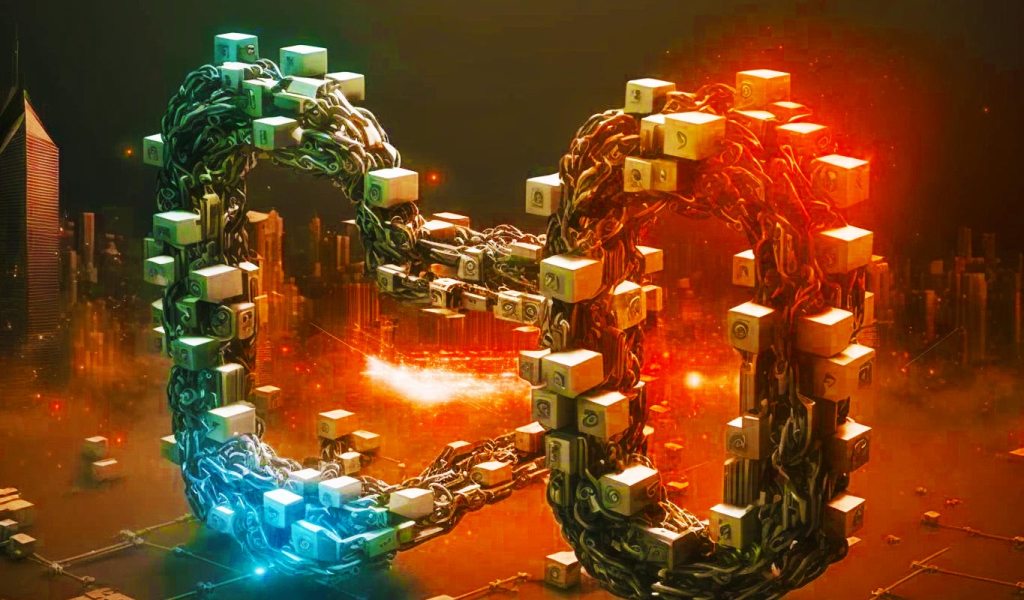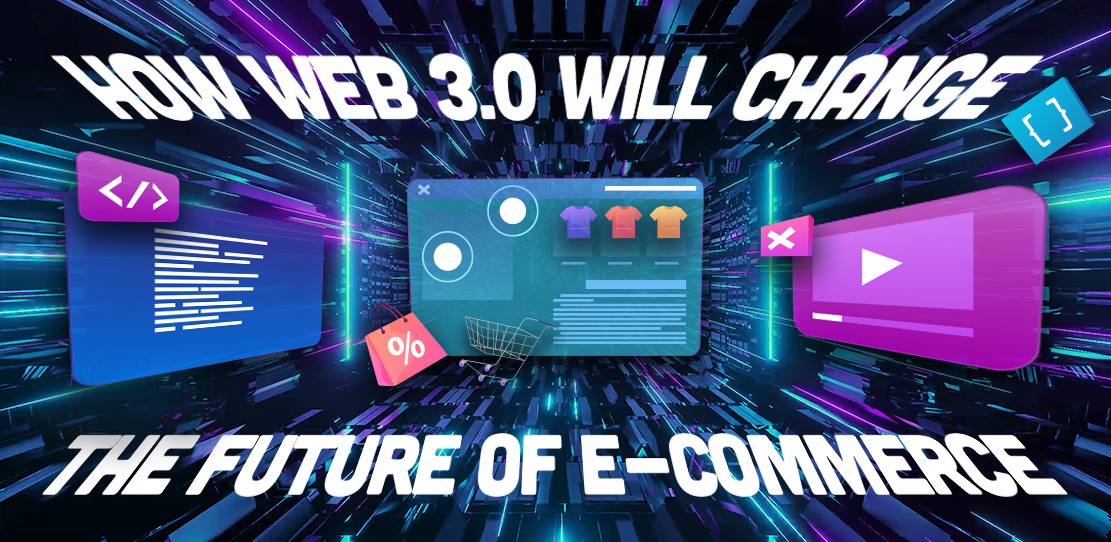
HodlX Guest Post Submit Your Post
Web 3.0 is no doubt the latest generation of the World Wide Web, and it’s focused on transforming everyday users of the internet.
While it’s gradually revolutionizing how global industries operate, the e-commerce industry should not be overlooked.
According to Statista’s report covering the third quarter of 2023, in the United States alone their e-commerce retail sales hit about $284 billion U.S. dollars the highest quarterly revenue in history.
Potential benefits of implementing Web 3.0 in e-commerce
Statistically, it’s a clear indicator that the e-commerce industry will gain more attention once Web 3.0 is incorporated into its operations.
By laying the groundwork of permissionless, decentralization and exclusive systems that any business can leverage online, Web 3.0 can turn everything we do online into products.
Although many revolutions are occurring in the Web 3.0 sphere, here are some key ways in which Web 3.0 is transforming e-commerce.
Decentralization
One of the major underlying problems in e-commerce is the unbending rules that make brands solely rely on platforms that regulate sales channels and even customer data before making sales.
Fortunately, blockchain technology emerged to create decentralized marketplaces.
Peculiarly, Web 3.0 will incorporate blockchain technology to eliminate the need for intermediaries, reduce fees and allow opportunities for direct peer-to-peer transactions.
Consequently, it will promote trust and transparency by decentralizing data storage and ensuring the immutability of records, which can enhance the security of online transactions.
Tokenization and cryptocurrency
The advent of Web 3.0 is gradually making the use of cryptocurrencies and tokens to be more prevalent in e-commerce.
While these digital assets enable frictionless international transactions and reduce payment processing fees, it is also interesting to know that they provide users with more control over their funds.
Smart contracts
Certainly in the e-commerce industry, contracts exist between buyers and sellers to ensure a smoother operational experience in processes like delivery, payment and returns.
Typically, Web 3.0 will leverage smart contracts to automate and enforce the terms of an agreement without the need for intermediaries.
In this case, contracts between buyers and sellers can be self-executing based on predefined conditions.
Enhanced personalization
Web 3.0 allows for greater data ownership and control by users. With your consent, businesses can access your data enabling a more accurate personalization of products and services.
This fosters a more personalized shopping experience tailored to individual preferences.
Improved supply chain management
This is another key transformation coming into e-commerce. This latest generation WWW will enable transparent and traceable supply chains.
This helps in verifying the authenticity and provenance of products, reducing counterfeiting, ensuring ethical sourcing and enhancing overall supply chain efficiency.
Community-driven marketplaces
DAOs (decentralized autonomous organizations) are speedily emerging as community-driven marketplaces in Web 3.0.
These organizations empower community members to make decisions collectively, impacting product offerings, pricing strategies and even governance.
Content monetization
If you’ve been cheated in the past as an online content creator, rejoice Web 3.0 allows content creators to monetize their work directly through microtransactions and bypassing traditional advertising models.
This can be particularly impactful in influencer marketing and content-driven e-commerce.
Interoperability
This is another way Web 3.0 is revolutionizing the e-commerce space.
Web 3.0 aims for increased interoperability between different platforms and services, allowing for smoother integration of e-commerce functionalities across various applications and devices.
Note Web 3.0 holds immense potential for revolutionizing e-commerce, but challenges such as scalability, regulatory compliance and user adoption remain.
Expected drawbacks of implementing Web 3.0 in e-commerce
While the concept of Web 3.0 holds the promise of a decentralized and more user-centric internet, implementing it in e-commerce may come with certain challenges and drawbacks.
Meanwhile, it’s important to note that the technology and its implications are still evolving, and the following points are based on current events.
Scalability issues
Web 3.0 leverages blockchain technology which can face scalability challenges. As the number of transactions and users increases, blockchain networks may struggle to handle the load efficiently.
This could lead to slower transaction processing times and higher fees since the technology is still evolving.
User experience
Yes, the learning curve for users may be steep when transitioning to Web 3.0, as it involves managing private keys, interacting with DApps (decentralized applications) and understanding blockchain concepts.
This could result in a less intuitive and user-friendly experience compared to traditional e-commerce platforms.
Regulatory uncertainties
The regulatory landscape for blockchain and cryptocurrencies is still evolving. Implementing Web 3.0 in e-commerce may face regulatory challenges, potentially leading to legal uncertainties for businesses and users.
Volatility of cryptocurrencies
Many Web 3.0 applications use cryptocurrencies for transactions. The value of cryptocurrencies can be highly volatile, which may be risky for both merchants and consumers.
Price fluctuations could affect the cost of goods and services and impact the overall stability of e-commerce transactions.
Security concerns
While blockchain is known for its security features, there have been instances of smart contract vulnerabilities and security breaches.
The decentralized nature of Web 3.0 doesn’t eliminate security concerns entirely, and new challenges may emerge as the technology evolves.
Integration challenges
Transitioning from traditional e-commerce systems to a Web 3.0 model may require significant changes in infrastructure and technology stacks.
Integrating existing business processes with decentralized systems could be complex and time-consuming.
Lack of standardization
The Web 3.0 space is currently characterized by a lack of standardization. Different blockchain networks and protocols may not be interoperable, making it challenging for businesses to adopt a unified approach.
Sometimes, a lack of standardization can hinder the seamless operation of DApps and e-commerce platforms.
Environmental impact
Some blockchain networks rely on PoW (proof-of-work) consensus mechanisms, which can have environmental implications due to the energy consumption associated with mining.
This could raise sustainability concerns, especially if widely adopted in e-commerce.
Legal and ethical issues
Decentralization raises questions about accountability and legal responsibility.
Disputes in decentralized systems may be more challenging to resolve, and the lack of a central authority could complicate legal proceedings in the event of fraud or disputes.
Market acceptance
Users and businesses may be resistant to change, especially if the benefits of Web 3.0 in e-commerce are not immediately apparent or if the technology is not widely adopted.
Overcoming inertia and building trust in decentralized systems may take time.
In general, Web 3.0’s decentralized, transparent and user-centric nature is reshaping the e-commerce landscape, fostering innovation and redefining the relationships between consumers, businesses and data.
While Web 3.0 holds the potential to revolutionize e-commerce, its implementation comes with several challenges that need to be carefully addressed to ensure a smooth and successful transition.
As the technology matures and the ecosystem evolves, some of these drawbacks may be mitigated or resolved.
Ejiofor Francis is the founder of PhysicsMetaverse and a tech writer with over six years of experience. His current focus is on blockchain, AI and tech matters. He loves helping both startups and mid-sized companies to develop the great content and marketing strategy that sets them on the right track.
Follow Us on Twitter Facebook Telegram

Disclaimer: Opinions expressed at The Daily Hodl are not investment advice. Investors should do their due diligence before making any high-risk investments in Bitcoin, cryptocurrency or digital assets. Please be advised that your transfers and trades are at your own risk, and any loses you may incur are your responsibility. The Daily Hodl does not recommend the buying or selling of any cryptocurrencies or digital assets, nor is The Daily Hodl an investment advisor. Please note that The Daily Hodl participates in affiliate marketing.
Generated Image: Midjourney
The post How Web 3.0 Is Changing the E-Commerce Industry appeared first on The Daily Hodl.





